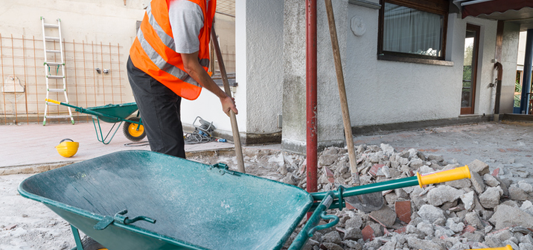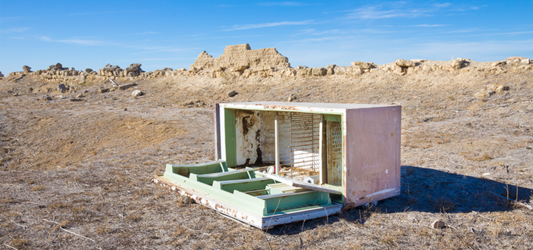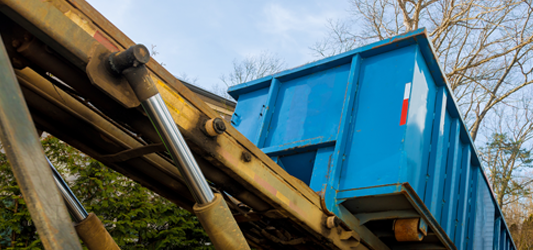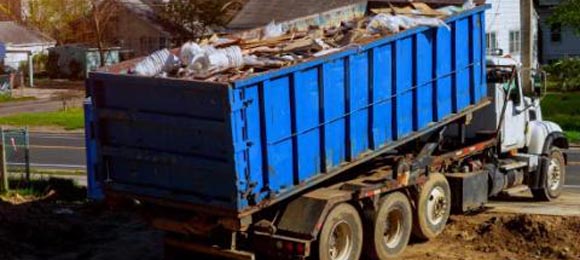
Updated September 1, 2022
It’s not easy to maintain or calculate the final weight of a dumpster load, but it is important to have a relatively accurate estimate.
Having an accurate estimate is key to avoiding potential expensive overage charges.
We'll go over:
- What Is an Overage Fee?
- How Do I Calculate the Weight of Debris and Junk?
- What If I Don't Know How Much My Junk or Debris Will Weigh?
- How to Find the Best Dumpster Rentals
Find a reputable dumpster rental service in your area
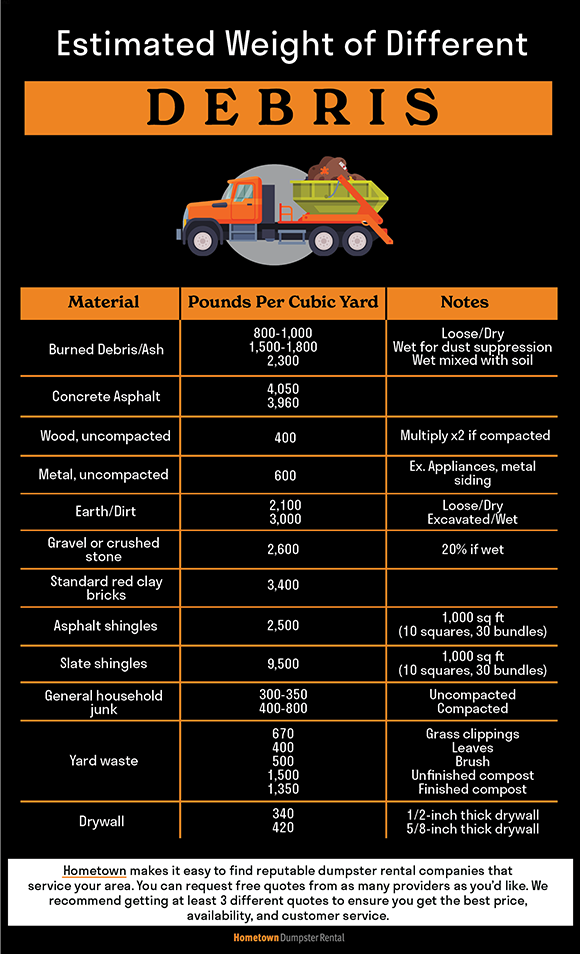
What Is an Overage Fee?
An overage charge is an additional fee that is added to the final bill if the weight of a dumpster load exceeds its weight allowance.
Overage fees vary by company but typically range from $50 per ton to $100+ per ton.
Let's say you contact a dumpster company and they quote you $400 to rent a 20 yard dumpster with an included 2-ton (4,000 lb) weight allowance.
The dumpster rental company states there is a $50 per ton charge for going over your 2-ton weight limit.
After filling the dumpster and having it hauled away, the dumpster rental company weighs the load at the landfill and finds it is 1,000 lbs over the weight allowance.
In this scenario, you will incur a $50 additional charge on your bill, so your total bill is now $450.
Note that the overage doesn’t have to be a full 2,000 lbs (1 ton) over the weight allowance in order to be charged the full amount ($50 in this example).
Many dumpster rental companies charge overage fees this way, while others offer prorated overage fees.
Common weight allowances by dumpster size:
- 10 yard: 2 tons (4,000 lbs)
- 20 yard: 4 tons (8,000 lbs)
- 30 yard: 4 tons (8,000 lbs)
- 40 yard: 6 tons (12,000 lbs)
As previously mentioned, weight allowances vary by dumpster rental provider.
Reach out to them directly to get the most accurate and up-to-date cost info.
Keep reading:
- A Comprehensive Guide to Dumpster Weight Limits
- How Much Weight Can a 20 Yard Dumpster Hold?
- Top 6 Ways to Avoid Dumpster Overage Fees
How Do I Calculate the Weight of Debris or Junk?
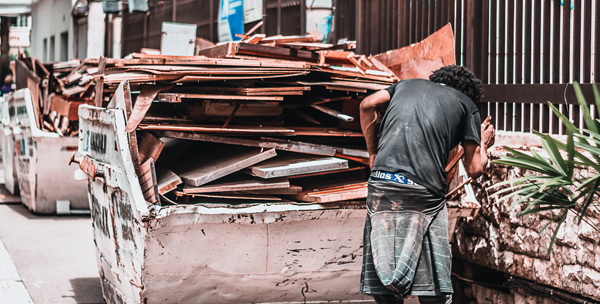
The weight of dumpster loads can vary a great deal.
For instance, a 10 yard dumpster filled to the top with cabinets and linoleum flooring will weigh far less than a 10 yard dumpster filled with stone or masonry debris.
The estimated weights in the chart below are per cubic yard.
It may be helpful to keep in mind that one cubic yard measures 3 ft x 3 ft x 3 ft in size, which is roughly the same dimensions as a standard kitchen stove.
Average Weight of Common Debris
|
Material
|
Pounds Per Cubic Yard
|
Notes |
|---|---|---|
|
Burned debris/Ash |
800-1,000 |
Loose/dry |
|
Concrete |
4,050 |
|
|
Wood, un-compacted |
400 |
Multiply x2 if compacted |
|
Metals, un-compacted |
600 |
Ex. Appliances, metal siding |
|
Earth/Dirt |
2,100 |
Loose/dry |
|
Gravel or crushed stone |
2,600 |
20% more if wet |
|
Standard red clay bricks |
3,400 |
|
|
Asphalt shingles |
2,500 |
1,000 sq ft (10 squares, 30 bundles) |
|
General household junk |
300-350 |
Un-compacted |
|
Yard waste |
670 |
Glass clippings |
|
Drywall |
340 |
1/2-inch thick drywall |
It's important to remember that volume does not necessarily dictate the weight of a load.
For example, a 10 yard dumpster filled to the top with household furniture will likely weigh less than a 10 yard dumpster filled one-fifth of the way full of concrete debris.
Wet debris weighs significantly more than dry wastes, which is why we advise covering the dumpster with a tarp during rainstorms to avoid saturating the load.
Estimating the weight of your junk or debris can be particularly tricky if multiple types of waste are disposed of in the dumpster.
Using this formula to help keep a running estimate of what enters the dumpster is a useful strategy to keep the load under the weight allowance:
(Weight of 1 yard of a particular waste) x (Number of square yards) = Total weight
Make sure to calculate for each type of waste and then add each together to get the total load weight.
Knowing what and approximately how much debris is put in the dumpster—along with using the chart above—can help you estimate a load's weight and be sure you stay within your weight limit.
Learn more:
- How to Estimate Shingle Weight and Save on the Cost of Roof Disposal
- 10 Questions to Ask Dumpster Rental Companies Before Renting
- 6 of the Best Ways to Dispose of Yard Waste
Contact licensed dumpster companies in your hometown
What If I Don't Know How Much My Junk or Debris Will Weigh?
Use the dumpster rental company’s expertise to your advantage.
Experienced dumpster rental providers are the best source for getting a rough estimate of how much a dumpster load will weigh based on the type of debris and size of the project.
They also understand local landfill fees, permit requirements, and of course, the cost of overage charges.
They are the experts; use their expertise to get a better understanding of which size dumpster to choose and how high you can fill the container without incurring overage fees.
Continue reading:
- The Importance of Diverting Debris and Waste from Landfills
- Do I Need a Permit to Rent a Dumpster?
- 5 Tips for Construction Debris Disposal
How to Find the Best Dumpster Rentals
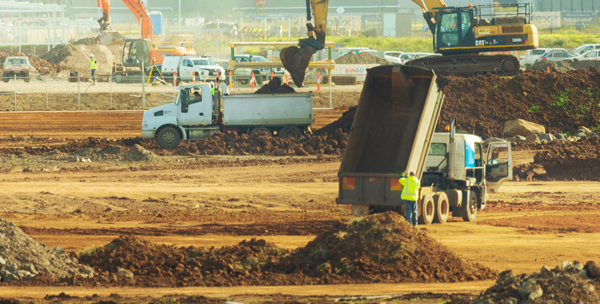
The best way to get the best dumpster deal in your area is by renting from a local provider.
Nationwide haulers tend to have less flexibility when it comes to pricing and available containers.
Plus, small local companies are typically owner-operated, which tends to mean better customer service.
Finding reputable dumpster companies is easy with Hometown.
You can locate locally-owned providers and request free quotes to compare pricing.
The more quotes you get, the more likely you are to find the right size dumpster at the best price.
Get free dumpster rental quotes near you
Learn more:
